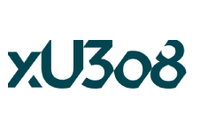After two years of trying to reach a deal, Areva and Niger have finally agreed to terms for uranium extraction in the African country.
Areva has agreed to operate under Niger’s 2006 mining code, which includes a reduction in tax breaks as well as a rise in royalty rates. Furthermore, Areva has agreed to pay 90 million euros ($122 million) to construct a road from Tahoua to Arlit, as well as an additional $17 million euros ($23.1 million) for local development. The miner will also build Niger new headquarters for Somair and Cominak. Finally, Areva and the state of Niger have agreed to appoint managing directors of Nigerien nationality to the boards of both Somair and Cominak.
“We have been partners with Niger for over 40 years and we have a long-term relationship, above all as an investor. We want to make sure that these mining operations are the best in the world and guarantee a certain longevity in a very difficult market. This is the context of these negotiations,” Areva’s mining boss, Olivier Wantz, told RFI.
Niger and Areva have been locked in talks for two years and were unable to reach a deal before the 10-year producing agreement expired on December 31, 2013, requiring a temporary extension. Areva’s CEO, Luc Oursel, explained that the new deal “affirm[s] the major place held by Niger in the global uranium industry.”
Uranium in Niger
Niger is the third-largest uranium producer in the world and has a stake — alongside Areva — in the Somair and Cominak mines, both of which shut down at the end of 2013 at the expiry of the license. Together, both mines produce over 4,000 tonnes of uranium per year.
Areva also holds the Imouraren project in Niger, which according to Reuters could more than double Niger’s uranium output to somewhere in the area of 9,000 tonnes. However, despite President Issoufou’s interest in starting the mine prior to seeking re-election, the current depressed uranium market indicates that doing so would not be profitable.
“We’re going to follow the evolution of the market with the objective of restarting Imouraren by Jan. 1, 2017 at the latest, as soon as the world price allows it,” Mines Minister Omar Hamidou Tchiana later said.
Oursel is also in accordance, and has said that “[i]n the current context, neither Areva nor Niger are interested in dumping uranium on the market that would not find a buyer.”
Securities Disclosure: I, Vivien Diniz, hold no direct investment interest in any company mentioned in this article.






